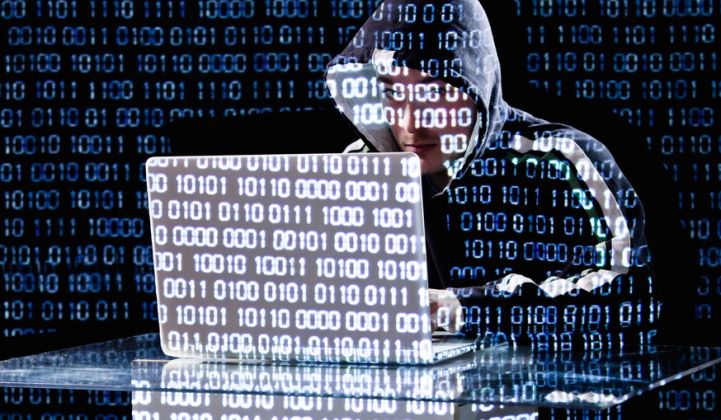The U.S. Department of Commerce has decided it will not investigate charges that China committed cyber-espionage against SolarWorld Industries America during a 2012 trade investigation of Chinese crystalline silicon PV cells.
In July, SolarWorld issued a “request for changed circumstances” after the Department of Justice charged five members of the Chinese military with cyber-espionage against several U.S. companies. In addition to SolarWorld, the hackers allegedly stole proprietary information from Alcoa, U.S. Steel, Westinghouse Electric Co., Allegheny Technologies Inc. and United Steelworkers.
In a memo issued last week, Commerce said that the allegations raise “serious concerns,” but the issue did not appear to affect the department’s probe into anti-dumping and countervailing duties. The 2012 investigation ultimately handed down heavy tariffs on Chinese companies, averaging 31 percent.
“The claims do not suggest that information submitted to the Department by the Government of the [People’s Republic of China] or the company respondents during the course of the underlying investigations was inaccurate as a result of the alleged cyber-espionage or that the alleged cyber-espionage otherwise led to the AD and CVD determinations and orders being based on inaccurate information,” according to Commerce.
In its request for review, SolarWorld alleged that Chinese government hackers stole trade secrets, including privileged client-attorney information related to the solar trade case, and distributed them to industry competitors.
SolarWorld said in a statement this week that it appreciates the Commerce Department’s interest in the issue, and will continue to assist with other investigations into China’s cyberattacks against U.S. companies.
“We will continue to support the efforts of U.S. government agencies, and in particular the Justice Department indictments, and their continuing investigation of this matter,” said a spokesperson.
Commerce’s decision is the second setback for SolarWorld in recent days, albeit a minor one. On Saturday, in a preliminary review of Chinese solar panel imports from May 2012 to November 2013, Commerce determined that China’s product dumping was less egregious than previously thought. The new proposed margins could bring the 31 percent tariff on most Chinese PV panel makers down to roughly 15 percent.
Any changes won’t take effect until the final ruling, expected in May or June. According to GTM Research’s Shayle Kann, final reviews generally aren't much different than preliminary ones.
Up to this point, SolarWorld has won almost every battle in the solar trade war. In December, the Commerce Department closed what SolarWorld labeled a “loophole” that allowed Chinese module manufacturers to avoid U.S. tariffs by using cells made in Taiwan. The final ruling handed down steep anti-dumping tariffs on PV products from China averaging 52 percent and countervailing duties averaging 38 percent.
Most Taiwanese companies received a final dumping margin of 19.50 percent.
That decision from Commerce now goes before the International Trade Commission. If upheld in a vote expected on January 29, the tariffs will become permanent as early as February 1.



